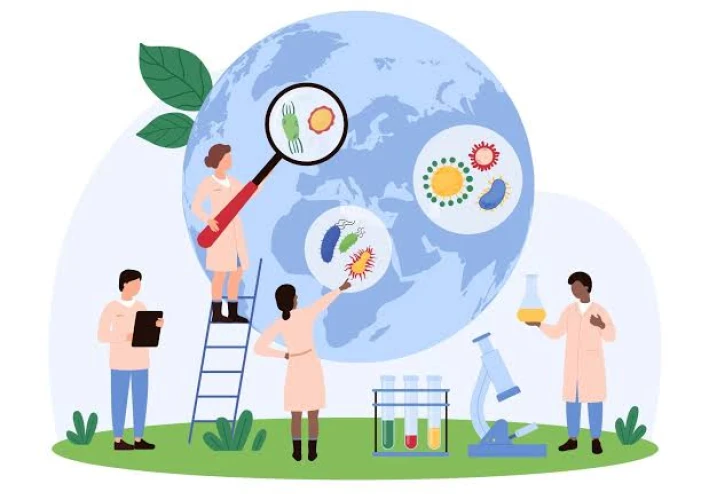
Epidemiology and disease control
Epidemiology and Disease Control: Safeguarding Public Health
Epidemiology and disease control are at the heart of public health, serving as essential tools to identify, prevent, and manage diseases that affect populations. These fields aim to understand patterns of illness, determine causes, and implement strategies to reduce the burden of disease. By tracking outbreaks, analyzing data, and promoting prevention, epidemiology plays a pivotal role in protecting human health worldwide.
What Is Epidemiology?
Epidemiology is the scientific study of diseases and health-related events within populations. It investigates the distribution (who, where, and when) and determinants (why and how) of diseases. Epidemiologists act as "disease detectives," collecting data, identifying risk factors, and recommending interventions to prevent or control health issues.
The key objectives of epidemiology include:
1. Identifying Disease Causes: Understanding how a disease spreads and its origins.
2. Measuring Disease Impact: Determining incidence (new cases) and prevalence (existing cases) in populations.
3. Evaluating Interventions: Assessing the effectiveness of public health programs and treatments.
4. Preventing Future Outbreaks: Using data to predict and mitigate health threats.
Epidemiology applies to infectious diseases, chronic conditions, injuries, and even environmental health issues, making it a versatile and crucial science.
---
The Role of Epidemiology in Disease Control
Disease control involves reducing the spread and impact of illnesses through targeted interventions. Epidemiology provides the foundation for these strategies by identifying patterns and causes of diseases, which enables authorities to implement evidence-based measures.
1. Surveillance and Monitoring
Epidemiological surveillance involves continuous collection, analysis, and interpretation of health data to monitor trends and detect outbreaks. Organizations like the World Health Organization (WHO) and the Centers for Disease Control and Prevention (CDC) rely on surveillance systems to track diseases globally and locally. For example, during the COVID-19 pandemic, real-time monitoring helped assess the spread of the virus and guided decision-making for lockdowns, vaccinations, and public health advisories.
2. Outbreak Investigation
When a disease outbreak occurs, epidemiologists investigate to determine its source, how it spreads, and how to contain it. They use methods like contact tracing, interviews, and data analysis to uncover patterns. A notable example is the investigation of cholera outbreaks in the 19th century, which laid the groundwork for understanding waterborne diseases. More recently, epidemiologists played a critical role in managing Ebola outbreaks in Africa.
3. Prevention and Intervention
Epidemiological findings guide the design and implementation of preventive measures. These include:
Vaccination Programs: Immunizations have successfully controlled diseases like polio, measles, and smallpox.
Health Campaigns: Public awareness campaigns educate populations on hygiene, safe practices, and early symptoms of diseases.
Quarantine and Isolation: Containing individuals exposed to contagious diseases reduces further spread.
4. Evaluating Public Health Policies
Epidemiology provides evidence to assess the effectiveness of policies and programs aimed at disease control. For example, studies evaluating the impact of smoking bans have demonstrated significant reductions in lung cancer and heart disease rates.
---
Epidemiological Methods
Epidemiologists use several methods to analyze and control diseases:
1. Descriptive Epidemiology: Focuses on “who, where, and when” a disease affects. For example, identifying a seasonal increase in flu cases helps plan vaccine distribution.
2. Analytical Epidemiology: Investigates “why and how” a disease occurs by studying risk factors and causal relationships. Cohort studies and case-control studies are common methods.
3. Experimental Epidemiology: Tests the effectiveness of interventions, such as clinical trials for new vaccines or treatments.
These methods ensure that decisions are data-driven and scientifically validated.
---
Challenges in Disease Control
Despite advancements, epidemiology faces challenges in disease control:
1. Emerging and Re-emerging Diseases: New diseases like COVID-19 and re-emerging ones like tuberculosis strain public health systems.
2. Globalization: Increased travel and trade can rapidly spread infectious diseases across borders.
3. Antimicrobial Resistance: The overuse of antibiotics has led to drug-resistant pathogens, complicating treatment options.
4. Data Collection Limitations: In resource-poor settings, the lack of accurate data hinders effective interventions.































